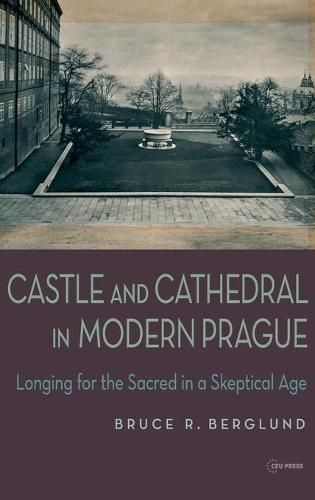Readings Newsletter
Become a Readings Member to make your shopping experience even easier.
Sign in or sign up for free!
You’re not far away from qualifying for FREE standard shipping within Australia
You’ve qualified for FREE standard shipping within Australia
The cart is loading…






Prague in the early twentieth century was the city of cubists, surrealists, and the Good Soldier Svejk. This book takes a new approach to interwar Prague by identifying religion as an integral part of the city’s cultural history. As Prague emerged as a modern city and the Czech nation gained independence, Catholics, Protestants, and those who imagined a non-sectarian religion debated questions of faith and morality. Contrary to the conventional view of modern Czech elites as atheistic, Berglund shows how they were deeply concerned with the place of religion in modern life. Based upon a wide array of sources, the monograph explores the linkages between politics, theology, and architecture in the building of new symbols and a civil religion for the first Czechoslovak republic (1918-1938). Berglund views the contest of the sacred and secular in Prague within the broader context of religious change in twentieth-century Europe. His book lays a foundation for understanding both Czech culture of the interwar period as well as the nation’s - and Europe’s - religious history in the modern age. The author takes an approach that is both interdisciplinary and biographical by focusing on important figures in the politics and culture of interwar Prague, including Tomas Masaryk, the philosopher who became Czechoslovakia’s first president; his daughter Alice, founding director of the Czechoslovak Red Cross; and Joze Plecnik, the Slovenian architect who directed the renovations of Prague Castle and designed one of the city’s most renowned churches. This study of the beliefs and doubts held by these and other figures shows the transition from a (mostly) Catholic tradition to a new religious conception that was modern, humanistic, and detached from any institution - much like the religious beliefs held by many Europeans today.
$9.00 standard shipping within Australia
FREE standard shipping within Australia for orders over $100.00
Express & International shipping calculated at checkout
Prague in the early twentieth century was the city of cubists, surrealists, and the Good Soldier Svejk. This book takes a new approach to interwar Prague by identifying religion as an integral part of the city’s cultural history. As Prague emerged as a modern city and the Czech nation gained independence, Catholics, Protestants, and those who imagined a non-sectarian religion debated questions of faith and morality. Contrary to the conventional view of modern Czech elites as atheistic, Berglund shows how they were deeply concerned with the place of religion in modern life. Based upon a wide array of sources, the monograph explores the linkages between politics, theology, and architecture in the building of new symbols and a civil religion for the first Czechoslovak republic (1918-1938). Berglund views the contest of the sacred and secular in Prague within the broader context of religious change in twentieth-century Europe. His book lays a foundation for understanding both Czech culture of the interwar period as well as the nation’s - and Europe’s - religious history in the modern age. The author takes an approach that is both interdisciplinary and biographical by focusing on important figures in the politics and culture of interwar Prague, including Tomas Masaryk, the philosopher who became Czechoslovakia’s first president; his daughter Alice, founding director of the Czechoslovak Red Cross; and Joze Plecnik, the Slovenian architect who directed the renovations of Prague Castle and designed one of the city’s most renowned churches. This study of the beliefs and doubts held by these and other figures shows the transition from a (mostly) Catholic tradition to a new religious conception that was modern, humanistic, and detached from any institution - much like the religious beliefs held by many Europeans today.